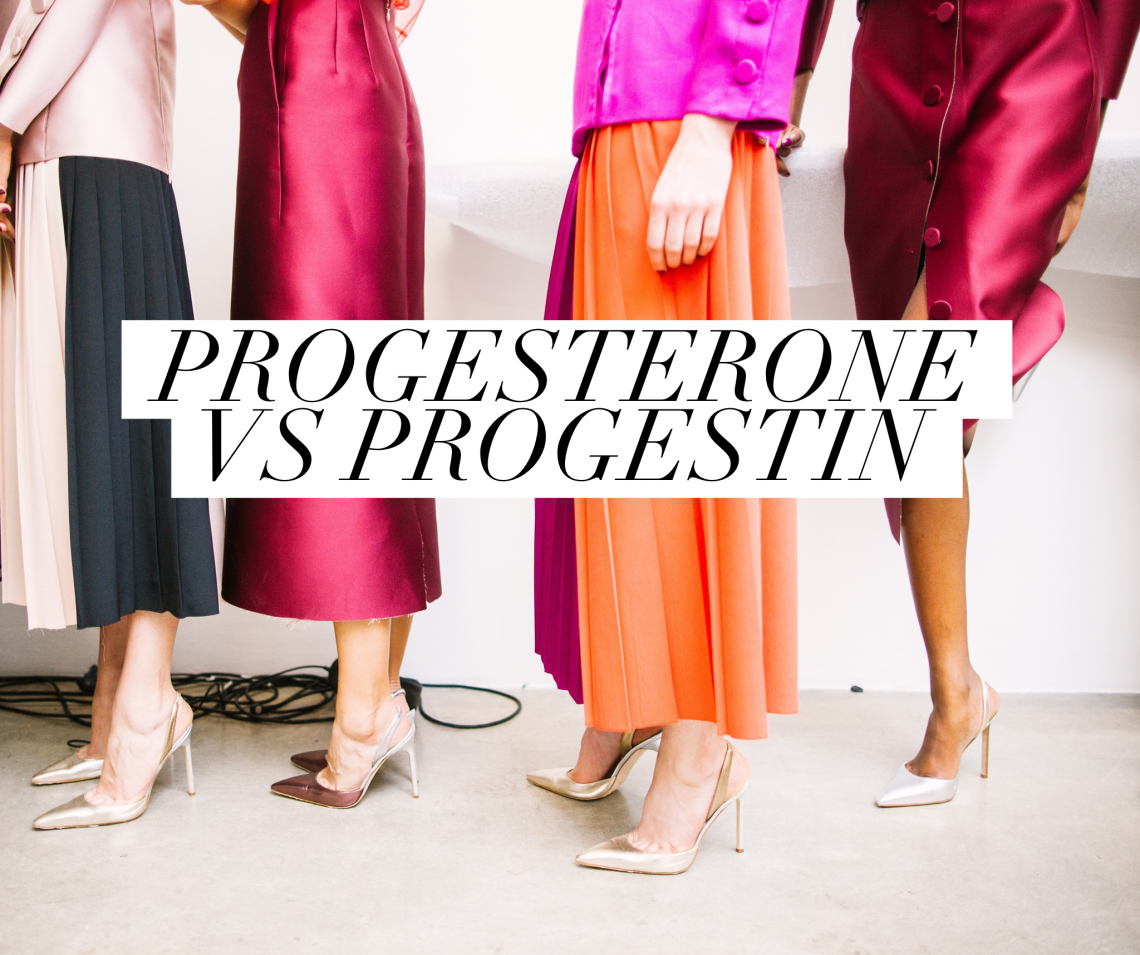Progesterone Vs Progestin

Are progesterone and progestin really interchangeable? What is the difference between the two? Today we seek to answer these questions and bring some clarification on an often confused subject.
In HRT, the main purpose of taking a progestogen (progesterone or a progestin) along with estrogen is to oppose the effect of estrogen on the endometrium and prevent endometrial cancer. Essentially, it counterbalances estrogen’s effects on the ovaries, as estrogen alone has a tendency to stimulate the growth of the ovary lining, which may contribute to an increased risk of cancer. Note that a progestogen is a colloquial word for a progesterone-like hormone, which is why it includes both progesterone and progestin, and also why there is a lot of confusion regarding the two. Often, physicians will use progestogen when referencing them and many do not distinguish between them at all.
 Progesterone is the naturally occurring hormone in the body, which originates from the ovaries and has various duties in the reproduction and menstruation cycles. Progestin is a synthetic, lab created hormone that is meant to mimic progesterone and act as it does in the body. The main difference between the two is that progesterone is naturally occurring and, in the case of bioidentical hormones, has a DNA structure that is identical to what the body is used to receiving, while progestin is similar but not identical.
Progesterone is the naturally occurring hormone in the body, which originates from the ovaries and has various duties in the reproduction and menstruation cycles. Progestin is a synthetic, lab created hormone that is meant to mimic progesterone and act as it does in the body. The main difference between the two is that progesterone is naturally occurring and, in the case of bioidentical hormones, has a DNA structure that is identical to what the body is used to receiving, while progestin is similar but not identical.
Because of the structural differences, some complications can occur when using progestin over progesterone and can result in incongruent biological messages. Long-term studies are showing that progestin cannot sufficiently create the balance needed with estrogen, and can sometimes even contribute to the imbalance.
Back in 2004, the Women’s Health Initiative released a study on women receiving hormone therapy (estrogen + progestin). What they found was a slight increase in the chances of breast cancer. What many failed to see from this report was that it was only women receiving therapy for both estrogen and progestin. Women’s Health Initiative released a 2004 study on stand-alone estrogen therapy, with a seven-year follow-up of the original study group, updated in 2007. The findings showed that not only was the increase in breast cancer not present but actually resulted in reduced plaque in the arteries, reducing the chance for heart disease by a notable amount. The results are congruent with other findings that suggest the artificial hormone either doesn’t recreate what progesterone does or complicates matters entirely.
For these reasons and much more, Rejuvime Medical always uses bioidentical progesterone, as well as all the hormones we utilize in our therapies, to provide the safest, most natural experience possible.
Get in Touch
Questions? Contact us today by phone or book an appointment online.
Questions? Call our office:
(225) 228-3128





